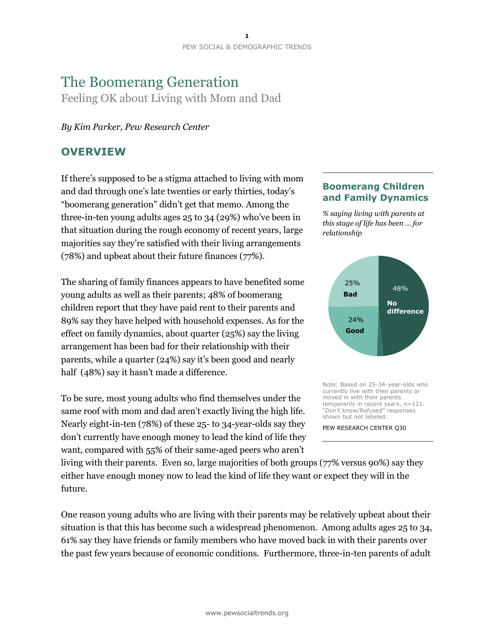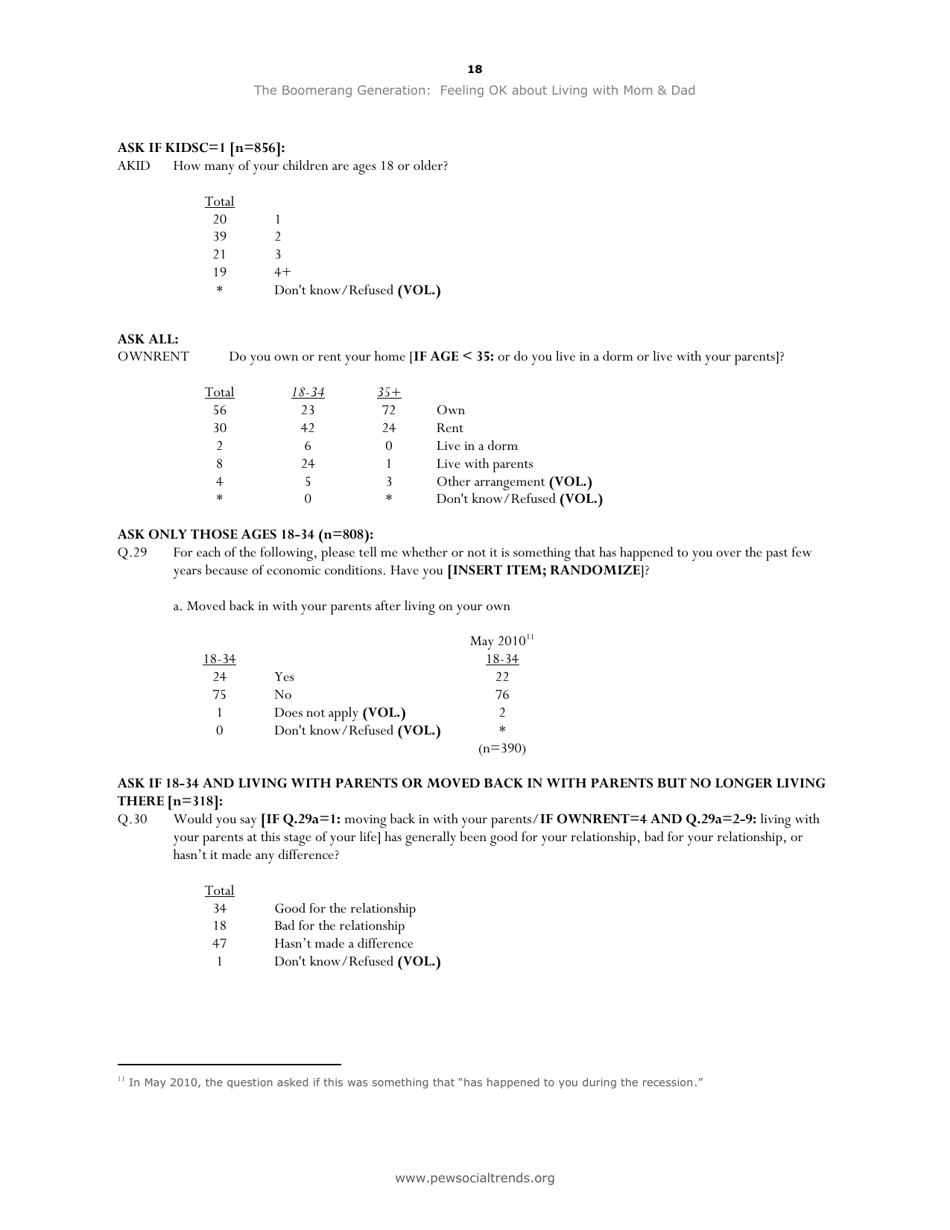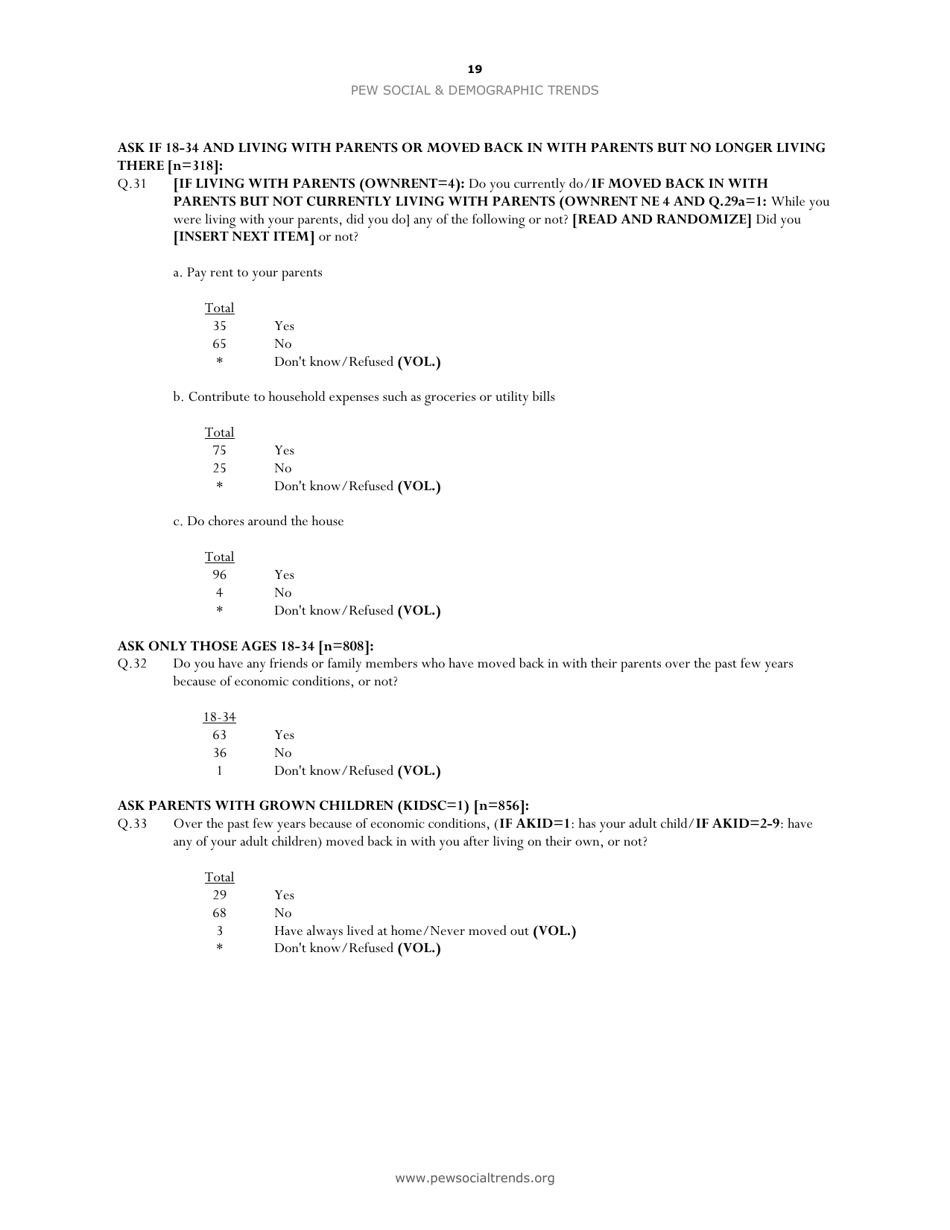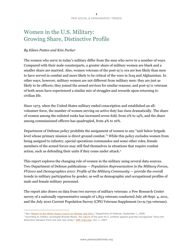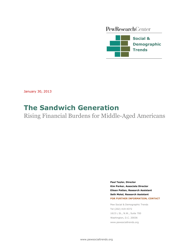The Boomerang Generation - Kim Parker, Pew Research Center
The Boomerang Generation refers to young adults who move back in with their parents after living on their own. Kim Parker is a researcher from the Pew Research Center who has conducted studies on this trend.
The Boomerang Generation - Kim Parker, Pew Research Center is filed by Pew Research Center.
FAQ
Q: What is the Boomerang Generation?
A: The Boomerang Generation refers to young adults who move back in with their parents after living independently.
Q: Why is it called the Boomerang Generation?
A: It is called the Boomerang Generation because these young adults 'boomerang' back to their parents' home.
Q: What is the age group of the Boomerang Generation?
A: The Boomerang Generation typically includes adults in their 20s and early 30s.
Q: Why do young adults become part of the Boomerang Generation?
A: Young adults become part of the Boomerang Generation due to factors such as financial difficulties, high housing costs, and student debt.
Q: What are some reasons for moving back in with parents?
A: Some reasons for moving back in with parents include job loss, inability to afford rent, and saving money.
Q: Is the Boomerang Generation unique to the United States and Canada?
A: No, the Boomerang Generation is observed in other countries as well.
Q: Does the Boomerang Generation have negative connotations?
A: The term Boomerang Generation does not necessarily have negative connotations; it simply describes a living arrangement.
Q: How has the Boomerang Generation changed over time?
A: The Boomerang Generation has increased in size over time due to economic factors and changing social norms.
Q: Are all young adults part of the Boomerang Generation?
A: No, not all young adults live with their parents; the Boomerang Generation represents a specific group.
Q: What are the implications of the Boomerang Generation for families and society?
A: The Boomerang Generation can impact family dynamics and have broader societal implications, such as delaying marriage and parenthood.
